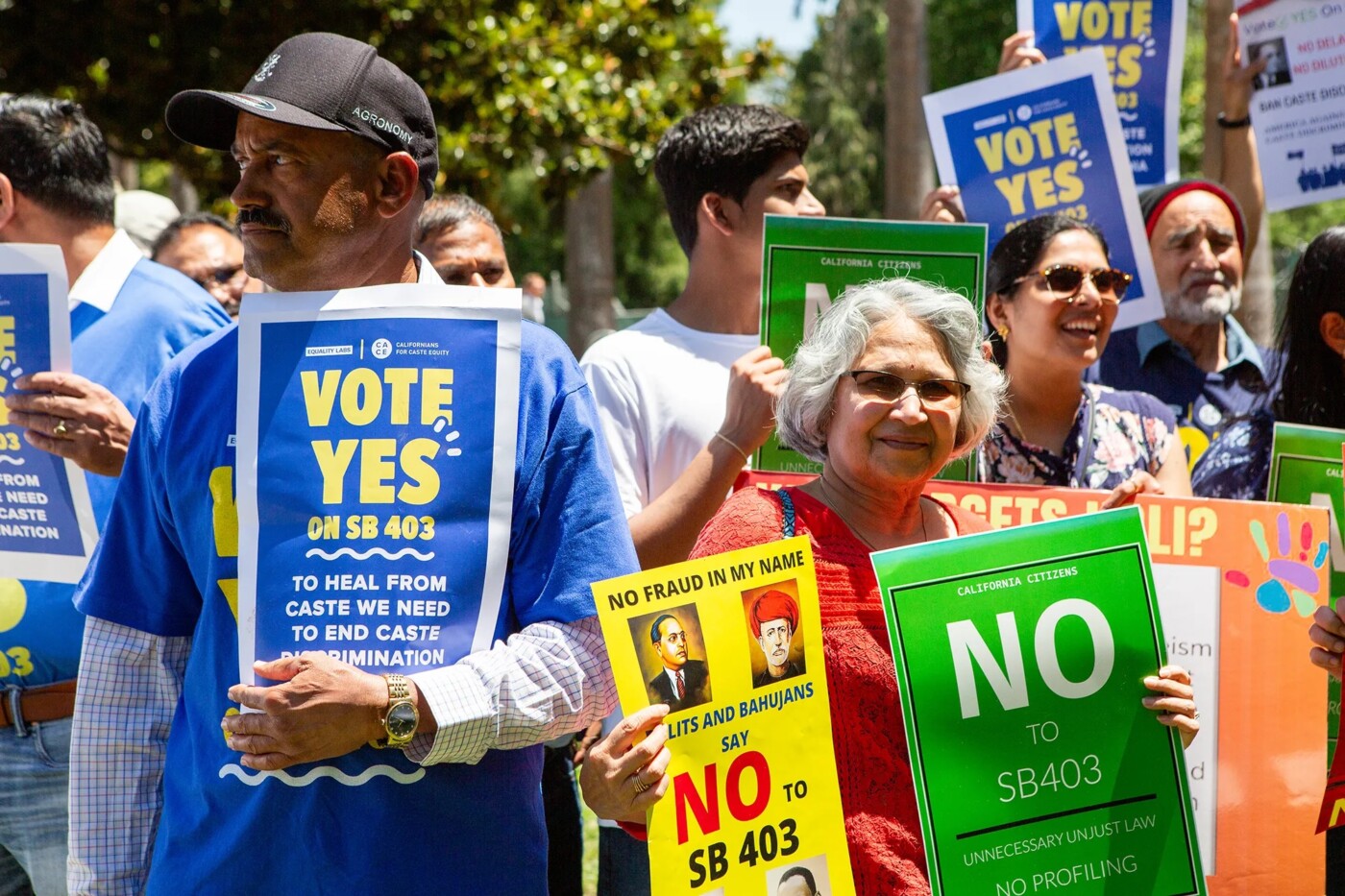From CalMatters state Capitol reporter Sameea Kamal:
After many twists and turns — intra-party drama, xenophobic comments against its author and division among some South Asian communities — the first-in-the-nation bill to ban caste discrimination in California’s housing and employment laws completed its journey through the Legislature Tuesday with a 31-5 vote in the Senate.
It heads next to the governor’s desk. Until Gov. Gavin Newsom signs it into law, a coalition of supporters says it is launching a statewide hunger strike “to remind the state that Californians have lost their jobs due to caste discrimination; have been unhoused due to caste discrimination; and have been harmed irrevocably by physical, sexual, and verbal violence.”
On the other side, the Hindu American Foundation, one of the groups that organized against the bill, is calling on Newsom to veto it.
What will the governor decide? His office told CalMatters he “will evaluate the bill on its merits.”
Senate Bill 403 by Sen. Aisha Wahab adds caste — a centuries-old social hierarchy system that has historically determined what jobs or education people can attain — to the list of protected classes, alongside race, gender and sexual orientation.
- Wahab, on the Senate floor, ahead of the vote: “This bill is very simple. It is to protect all people against caste discrimination, regardless of caste: upper caste, lower caste, it does not matter.”
Because caste is associated often with the South Asian community, opponents that included Hindu-American groups said they feared the bill would lead to racial profiling.
Those concerns led Assemblymembers Evan Low and Alex Lee — who both represent parts of the Silicon Valley, which is home to large South Asian communities — to call for delaying the bill to study it further, though they later voted for it.
In a concession to critics, the bill was amended in the Assembly to include caste as a subset of ancestry.
Still on Tuesday, five Republican senators, including Shannon Grove and Brian Dahle, voted “no” Tuesday, saying that discrimination is already banned under current laws and that the bill could unfairly target Hindu Californians.
Back from the holiday weekend, lawmakers dove right into passing dozens of other bills as well on Tuesday. They have floor sessions every weekday until adjournment a week from Thursday.
Let’s get right to some of the highlights:
Fentanyl battle: As expected, Assembly Republicans failed in their bid to force a floor vote on “Alexandra’s Law,” a state constitutional amendment that would require convicted fentanyl dealers to be warned that they could face murder charges if they keep dealing and their drugs cause a death. And to no one’s surprise, they were outraged.
- Juan Alanis of Modesto: “These (fentanyl) bills that are going forward right now unfortunately are not harsh, do not have any penalties with them, do not have any teeth. This is what we need to bring back.”
Assembly Republicans also issued a statement that Democrats were siding “with cartels and drug traffickers.” In response, a spokesperson for Assembly Speaker Robert Rivas said he is taking the issue “seriously” and is working with legislators to “increase penalties” and noted that fentanyl dealers are already being convicted of murder.
Not even waiting for the outcome, Alexandra’s father, Matthew Capelouto, filed a ballot measure on behalf of other victims’ families to go around the Legislature. The initiative calls for a prison sentence of 10 to 12 years for fentanyl dealers whose drugs cause a death and includes a warning to dealers that they could get charged with murder. The group must collect more than 546,000 valid signatures to qualify for the ballot.
Voting changes: A referendum reform bill won final approval in the state Senate and Assembly and is heading to Gov. Newsom. Originally drafted to put more guardrails on the process that critics say has been hijacked by big business, the bill would still require more disclosure of major funders. But Assemblymember Isaac Bryan changed the bill to focus on making the ballot language more clear for voters. Instead of “yes” meaning to uphold a challenged law, the ballot would say “keep the law.”
Also, the Culver City Democrat is putting off until next year his proposed constitutional amendment that would allow prisoners to vote from behind bars. There’s still time: The Legislature has until next June to put amendments before voters in November 2024.
